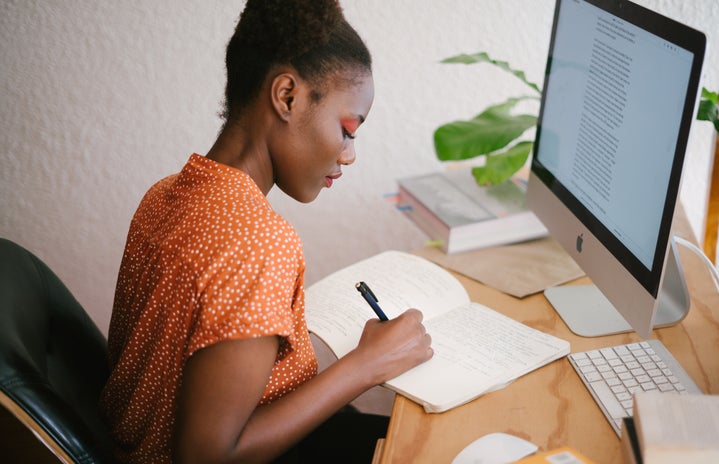The worst thing about interview season? It’s every season. You never know when an opportunity will come up, whether it be an internship for the summer or the perfect job that’s hiring immediately. You always have to be on your toes and have answers ready, so here are some of the most important questions you should always be ready to answer.
- Why should we choose you for this position?
-
Personally, I think this is the hardest question to answer. I find the most difficult questions to be ones where I have to talk myself up; for other questions, it’s easy to just highlight your skills and describe your experience, but for this one, you have to almost compliment yourself. It can feel weird or self-centered at the moment, but preparing specific points to cover can help you get past that. When a boss is interviewing you to see if you’re a good fit, they want to see that you’re not only knowledgeable about the area, but also clearly confident in that knowledge, and what you’ve achieved. The best leaders are always the confident ones because people feel more comfortable following people who they believe in. This is the place to highlight your experience, because those are the things that make you unique and set you apart from other candidates.
- What’s your biggest strength, and your biggest weakness?
-
Picking a biggest strength is pretty easy. Some good strengths are organizational skills, leadership abilities, and time management skills. Don’t try to embellish too hard with this one, choose a trait that you’re truly proud of that’s reflected in your prior experience. Picking a weakness is much more difficult. Try to choose something that you know can also be painted as a good quality, so that your answer is honest but still works in your favor. For example, saying that you’re a perfectionist and sometimes get too focused on specific details and getting things done a certain way could be considered a weakness, but it also shows that you’re committed and produce quality work. My biggest piece of advice with this question: don’t pick one run-of-the-mill answer to use for every interview. Make sure you’re picking traits that pertain to the position you’re going for, and highlight your skills for this specific job.
- How do you deal with conflict?
-
When it comes to dealing with conflict, compromise is key. Nobody wants to hire someone argumentative who can’t take criticism or work well with others, but they also don’t want someone who is going to follow along and not provide new contributions just to stay away from conflict. Prioritizing compromise encompasses all the big things a recruiter looks for: leadership skills, ability to work in groups, and an open and productive mind. Again, I urge you to answer these questions honestly. If you have other methods for dealing with conflict, add them in. You want to set yourself apart in any way you can, so throwing in unique ideas will make a recruiter remember you more than the three people before you with the same generic responses.
- What role do you usually play in group work/projects?
-
Working with others is an inevitable part of most every career, and you have to make the best of it. No matter what your attitude toward group work is, it’s important to express that you appreciate the benefits of it. Even more important, though, is the role you play in group work. Again, be honest about this one. If you’re a leader, that’s great! Share some of the ways you like to get everyone involved, and how you find it rewarding. If you’re more of a follower, that’s not a bad thing! Share all the different ways you like to contribute and emphasize the importance of behind-the-scenes individuals in any work setting. This is also a great time to make connections between the skills you discussed in other questions.
- Do you have any other questions for me?
-
This is always my dreaded question. I’m the kind of person who likes to do a lot of research, so usually, I’ve already answered all my own questions. However, it’s important to always have some questions prepared because it shows great initiative and expresses your genuine interest in the position. Here are some questions I like to ask. Again, try to pick one that pertains most to the workplace setting and type of position you’re going for:
“What would you say is the biggest/most important thing you look for in new employees?”
“How would you describe a typical day at your workplace?”
“Would you be able to put me in contact with one of your employees who is also in this position, so I could get more first-hand information from them?”
“How would you describe the management style here?”
Interviews can be stressful. I find that the more of them you do, and the more familiar you are with describing your experience and answering difficult questions, the less intimidating they will be. But it’s not just about being able to answer the interviewer’s questions, it’s about being able to answer them well and spotlight the skill and characteristics you possess that set you apart. Be honest, be prepared, and be yourself.



